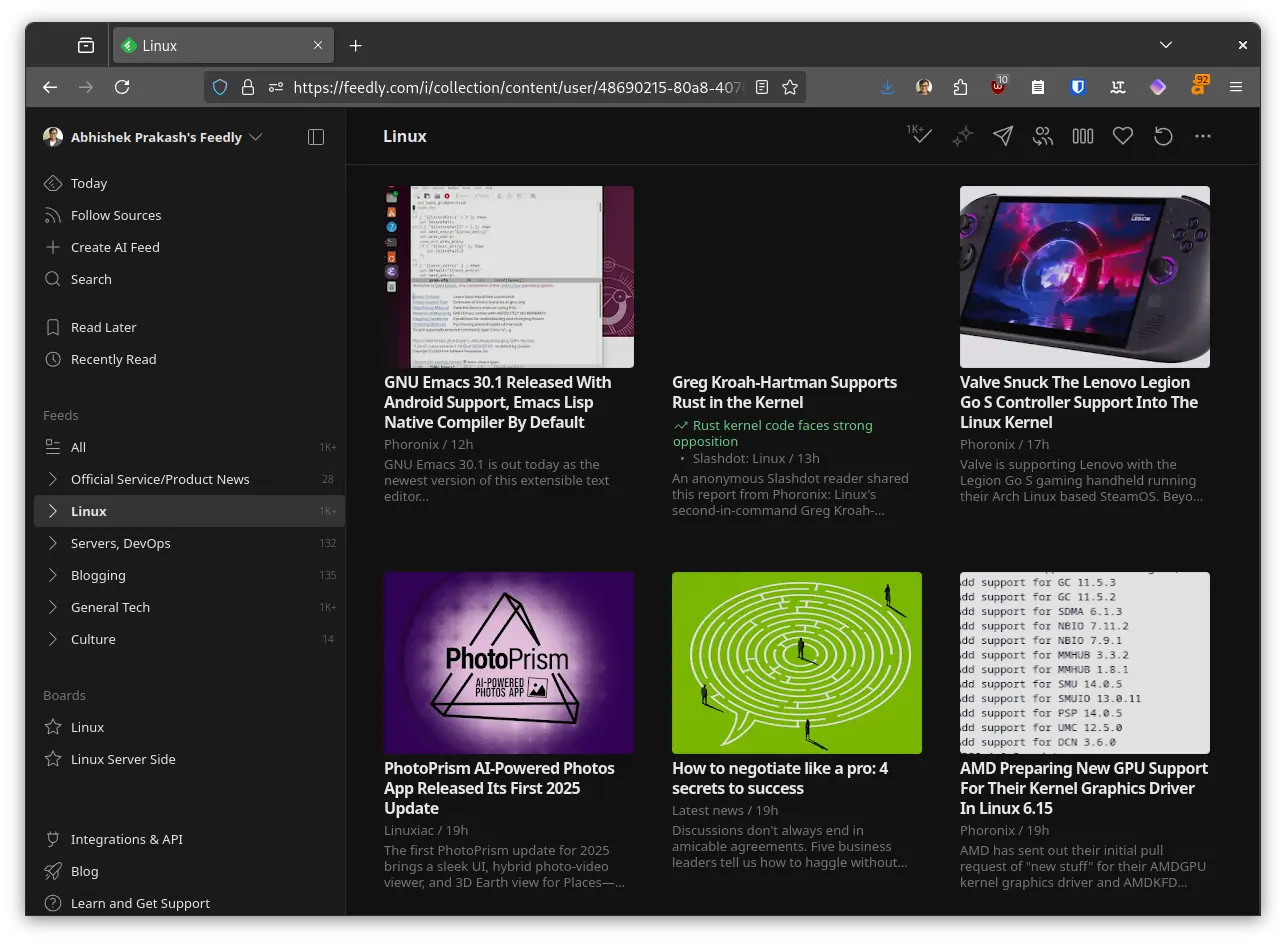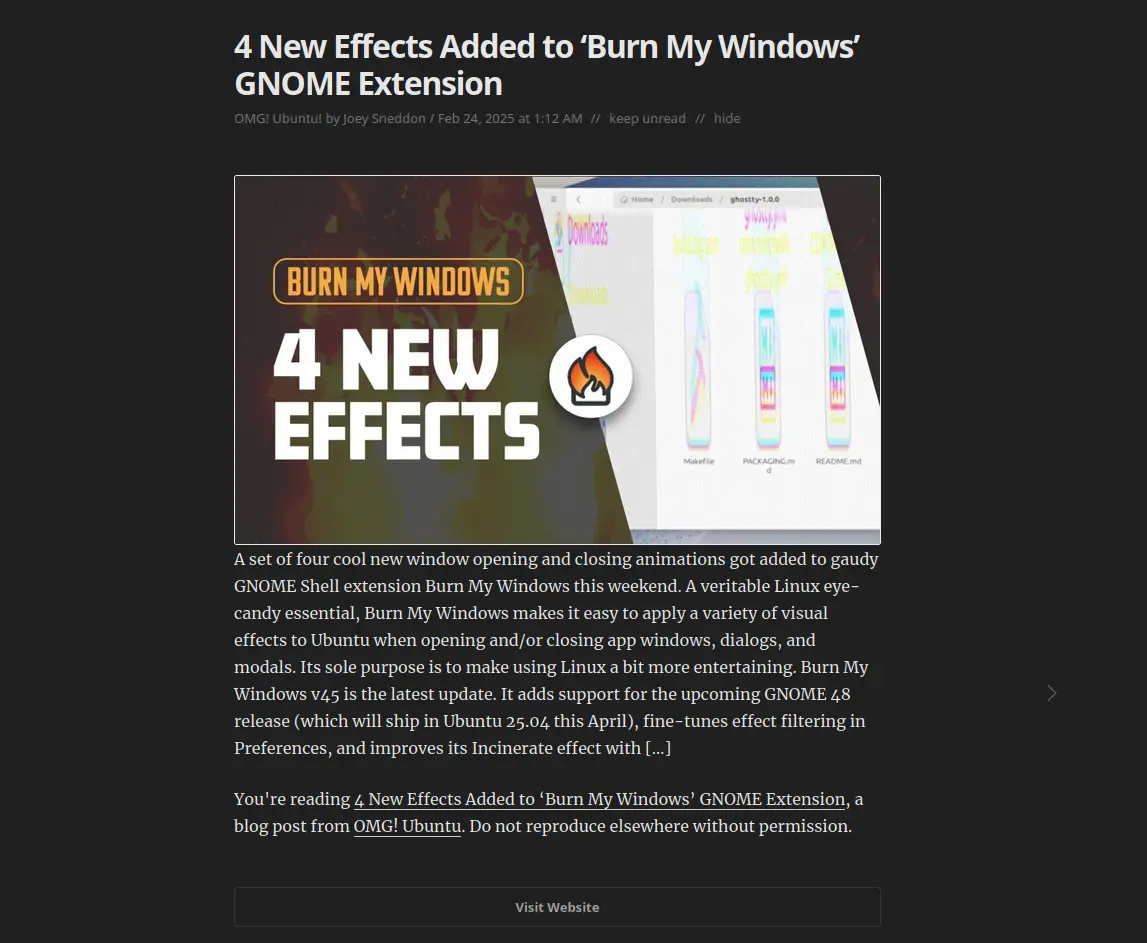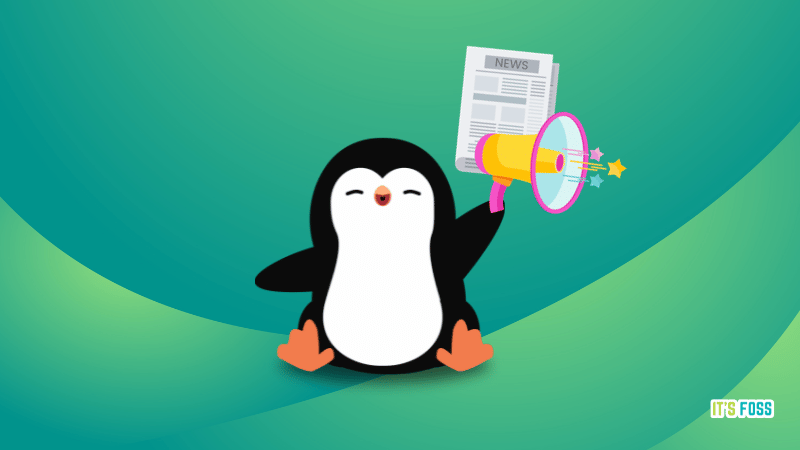
Remember RSS feeds? If you are old enough to have used the internet around 2010, you must have come across them.
If you started your internet journey with smartphones filled with apps, I don't blame you for not knowing about them.
RSS feeds are basically a way to learn about the newly published articles on your favorite websites and read them.
Sounds old schools, right? But I still use and in fact love RSS Feeds, specially in this age of algorithm-driven content discovery.
Let me tell you why.
Why RSS feeds matter even in 2025?
Where do you get your daily dose of information on topics of your interest? YouTube, Facebook, Twitter, Google News, Instagram, TikTok, etc.
All these social platforms have their own algorithms. These algorithms decide what kind of content you would like to see, based on your activities.
And this is where you hand over the control to the algorithms. And every platform wants to control what you should see, irrespective of what you want to see.
Think about it. Do you see (all of) the contents posted by your liked Facebook pages or the accounts you follow? Perhaps some, but not all. You are often consuming random content from random sources and thus spending/wasting time more than intended.
You specifically followed the page/account/channel for their content but you didn't 'interact' with them enough and algorithms think you are no longer interested in them and stop/reduce showing content from them.
(Re)enter RSS feed in the scenario.
You have a bunch of favorite websites. You like their content and would like to read regularly from them.
You add them to an RSS feed tool and it shows you the newly published articles. Great! If you like the title, you read it. Else, you ignore it. You are in control here.

This may appear excessively straightforward, however, at times, simplicity can prove to be the most effective approach.
You are not dependent on the algorithms to show content on Linux from random accounts. You choose to decide from where you want to read. And that's precisely what I want.
RSS feeds solved a different problem back in the day
Using the internet was different 20–25 years back. You come across an interesting website, you bookmarked it in your browser so that you don't lose it or forget about it. And then you refresh that website multiple times a day to see if they published something new.
This would become problematic if you had twenty or thirty favorite websites. You could not open those many websites and refresh them periodically.
This is the problem that Aaron Swartz (rest in peace, genius) and others solved by creating RSS.
You used a feed aggregator software, add the URI of the feed of your favorite websites and it fetches the new articles automatically as they are published.

Back in those days, RSS solved the problem of content discovery when there were no other mechanism. It still solves the same problem because there are too many means of content discovery and it is difficult to actually discover the content from the source you prefer.
Take back control
All websites provide an RSS feed (there can be a few exceptions, but it is rare).
Some websites restrict content in the feed, meaning, you only see part of the content and to read the rest, you have to visit the website in a web browser. That's okay. At least, you know about the new content your favorite website publish.

Most websites share their feed URI in the bottom footer. If not, it should be available at website.com/feed/ or website.com/rss/
You add these feed URI to a feed reading tool of your choice and enjoy.
There are plenty of Feed reader tools for desktop, mobile and web. Here's a list of RSS tools for Linux desktop.

Some tools even allow (automatically) download of the articles so that you can read them even without the internet. A feature which was far more useful in the days when a continuous active internet connection was a luxury.
You may also use web-based feed readers like Feedly or Inoreader. This way, your added websites are always accessible when you are logged into your account. There are also browser extensions like Feedbro to help you organize your feeds.
And, you are never locked in to any platform, every service and app supports exporting/importing RSS feeds. So, whenever you want to move things/sync between devices (considering the app does not support it), you can simply import/export RSS feeds.
For example, we have a base list of websites we monitor for Linux related news. And when Sourav joined the team, an OPML (.xml) file of this feed was shared with him, saving him the trouble to manually add them in his feed reader tool.

Remember, it is an ad-free experience by default, and privacy-friendly too!
And again, with an RSS feed, you are no longer a part of an algorithm.
That's the part I like the most. I like being in control...of my data.

- Even the biggest players in the Linux world don't care about desktop Linux users. We do.
- We don't put informational content behind paywall. Your support keeps it open for everyone. Think of it like 'pay it forward'.
- Don't like ads? With the Plus membership, you get an ad-free reading experience.
- When millions of AI-generated content is being published daily, you read and learn from real human Linux users.
- It costs just $2 a month, less than the cost of your favorite burger.
Become a Plus Member today and join over 300 people in supporting our work.










